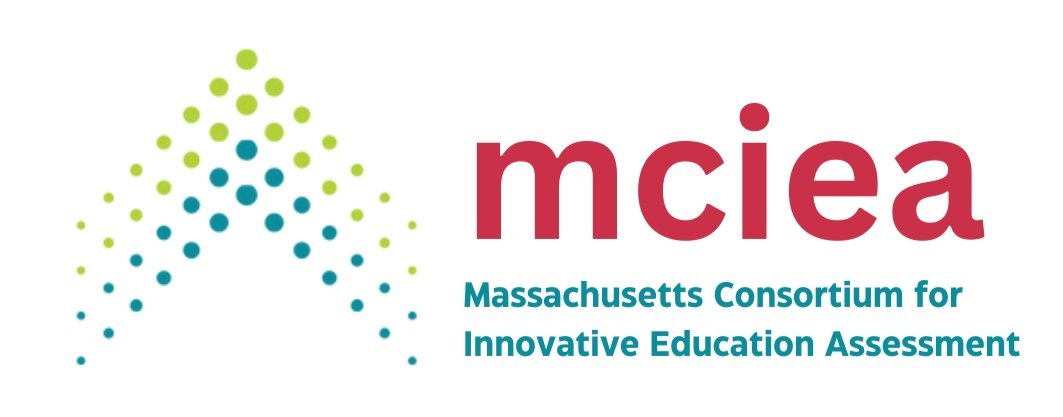MCIEA Resources
Who are we? What do we believe? How are we achieving our goals? All of these questions answered and more in this comprehensive worksheet.
MCIEA Fact Sheet
A quick synopsis of MCIEA and our work with Massachusetts educators over the last year.
Beyond Standardized Tests: A New Vision for Assessing Student Learning and School Quality
By Jessica Famularo, Dan French, James Noonan, Jack Schneider, and Emily Sienkiewicz
This white paper outlines MCIEA’s vision for a fair and effective accountability system that offers a more dynamic picture of student learning and school quality in Massachusetts.
School Quality Measures
School Quality Beyond Test Scores
A one-page flyer offers an overview of the school quality measures and how they offer a more holistic view of what makes a good school.
Why Multiple Measures?
By Jack Schneider
This white paper discusses how existing accountability systems are not measuring all of what matters in public education, and they are holding schools accountable for only a narrow slice of their full mission. Multiple measures can ameliorate many of the most obvious flaws in present measurement and accountability systems by expanding the number of school quality indicators.
For more information about each category and its indicators, check out this overview.
SQM Student and Educator Surveys
The questions that make up the survey component of the School Quality Measures framework and previews current survey offerings.
Performance Assessments
What Does a Performance Assessment System Look Like?
The necessary components of a school-wide performance assessment system and the process to create one.
A practical definition of performance assessments, as well as the benefits and challenges of using them in the classroom and at the state-level.
Portfolios of Performance: A Promising Model for More Meaningful and Equitable Assessment
Components of the Portfolios of Performance model, a new system of assessment being piloted in MCIEA districts.
Performance Assessment Systems: Examples from Four States
This report describes performance assessment systems from four states: Massachusetts, Colorado, New York, and Michigan, and includes information on how the systems are connected to curriculum and instruction, what professional development is offered for teachers, and any available data on the technical quality and impact of the systems.
Research & Commentary
It's Time for a New Accountability System in Massachusetts
This report looks at the impact of the 1993 passing of the Massachusetts Education Reform Act and implementation of the Massachusetts Comprehensive Assessment System (MCAS). Data from the National Assessment for Educational Progress (NAEP), as well as enrollment, graduation, and college-going rates, are presented to show whether the MCAS assessment and accountability system has made progress toward closing opportunity and achievement gaps by race, income, language, and disability.
GreatSchools Wanted to Disrupt Online School Ratings. But Did It Make Neighborhood Segregation Worse?
By Daniel Vock
This MotherJones report explores the damage caused by reductive school rating systems and how MCIEA serves as an alternative solution.
How 6 Mass. Communities Are Imagining Life Beyond MCAS
By Max Larkin and Carrie Jung
This WBUR report highlights some of the schools and leaders in MCIEA laying the groundwork for assessment change in Massachusetts.
Adding “Student Voice” to the Mix: Perception Surveys and State Accountability Systems
By Jack Schneider, James Noonan, Rachel S. White & Ashley J. Carey
New research looks at how school rankings under the state accountability system would change if student survey results from MCIEA were part of the evaluation formula.
Student Experience Outcomes in Racially Integrated Schools: Looking Beyond Test Scores in Six Districts
By Jack Schneider, Peter Piazza, Rachel S. White & Ashley J. Carey
Adding to the growing conversation about contemporary school segregation, this study compares MCIEA survey results for students in diverse schools against counterparts from less diverse schools. We find that school diversity comes with socio-emotional benefits for all students, especially white students in diverse schools.
The Best of Both Worlds
By Jack Schneider, Joe Feldman, and Dan French
Relying on teachers’ assessments for the information currently provided by standardized test scores would save instructional time, better capture the true abilities of diverse students, and reduce the problem of teaching to the test. The article offers guidelines and caveats to those interested in pursuing this work.
Creating Systems of Assessment for Deeper Learning
By David Conley and Linda Darling-Hammond
This report describes how state policymakers and education leaders can strategically design systems of assessment and accountability in ways that support learning for students, educators, and systems, alike. Drawing on research and successful practices in the United States and abroad, the report offers a blueprint for new systems of assessment that are able to support the development of deeper learning skills, to generate instructionally useful diagnostic information, and to provide insights about a wider range of student capacities.
MCIEA School Quality Measures Reliability Analyses: Results from the 2016-2017 Student and Teacher Surveys
By Edward J. Kim
This brief white paper explores the reliability of the SQM survey scales and how these findings have impacted the SQM student and teacher surveys moving forward.
Building a Better Measure of School Quality
By Jack Schneider, Rebecca Jacobsen, Rachel White, and Hunter Gehlbach
This article reviews the development of the school quality framework used by MCIEA and explores how it can give parents and community members a fuller and more nuanced picture of schools.
Visions of Education Podcast: Measuring School Quality with Jack Schneider
In this episode of the Visions of Education podcast, hosts Michael and Dan discuss measuring school quality with Jack Schneider, Director of Research for MCIEA.
The (Mis)measure of Schools: How Data Affect Stakeholder Knowledge and Perceptions of Quality
By Jack Schneider, Rebecca Jacobsen, Rachel White, and Hunter Gehlbach
Researchers conducted a randomized experiment, using a modified deliberative polling experience to test how parents and community members would respond to a broader array of school performance data. This article examines the influence of test scores and more holistic measures of school quality in shaping public understandings of familiar and unfamiliar schools.

